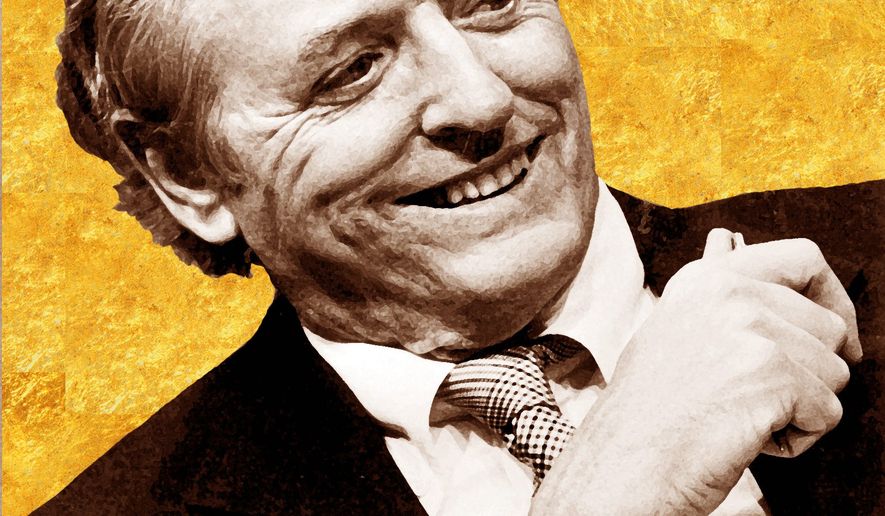OPINION:
It’s been exactly a decade since William F. Buckley Jr. died. Yet, surveying the ideological landscape, it feels more like a century.
Watch an episode of his program “Firing Line,” and you’ll see what I mean. There, Mr. Buckley — in his uniquely aristocratic way — would debate guests on the issues of the day. Not try to shout each other down, or trot out a quick sound bite before three or four different people cross-talked over you, but actually debate.
That may sound like a recipe for boredom, and perhaps by the cage-match mentality prevailing today, it was. But we’re talking about a program that racked up more than 1,500 episodes over nearly 35 years. People were watching, listening and engaging in debates of their own across the country.
Mr. Buckley, of course, was no mere host, but an intellect of the first order who preached undiluted conservatism. Author, publisher, commentator, he bucked the liberal order by revealing the emptiness of its utopian promises.
He got off to an early start, putting himself on the political map right out of college in 1951 with a best-seller called “God and Man at Yale.” Only a few years later, he founded National Review.
It’s hard to overestimate the importance of National Review to the conservative movement. Great thinkers on the right, such as F.A. Hayek, Russell Kirk and James Burnham, were producing important books, but before Mr. Buckley’s magazine hit newsstands in 1955, no periodical was unapologetically applying conservative principles to current affairs, especially in such an urbane and witty way.
“Though liberals do a great deal of talking about hearing other points of view, it sometimes shocks them to learn that there are other points of view,” he wrote in “Up From Liberalism.” Another classic zinger: “Liberals, it has been said, are generous with other people’s money, except when it comes to questions of national survival, when they prefer to be generous with other people’s freedom and security.”
With good reason did his son Christopher describe his father as “the intellectual godfather” to the movement that gave us Ronald Reagan. “I’d be lost without National Review,” the future president wrote to Mr. Buckley in 1962, two years before his famous “A Time for Choosing” speech for Barry Goldwater put him on the political map.
Mr. Buckley was sui generis: master of the spoken and written word; founder of institutions that outlive him; unheralded supporter of many individuals and organizations; political trendsetter; and a congenital optimist who led the way for so many to follow, while remaining a man of deep personal faith and belief.
Imagine a world without Mr. Buckley’s presence for all those decades, and his continuing legacy. Not only no National Review, still America’s pre-eminent journal of sensible thought and analysis, but no institutions of the right, ranging from the Young America’s Foundation to The Philadelphia Society. None of the thousands of next-generation followers who have made their individual marks in myriad ways to promote freedom worldwide.
Ever the defender of what Russell Kirk called “the permanent things,” Mr. Buckley continually reminded us that real conservatism is based on tradition and the cumulative wisdom of those on whose shoulders we stand.
He was reluctant to provide a final definition of conservatism, but he offered himself as a definition, admitting he was dependent on human freedom, not as an end, but as a means — to “live my life an obedient man, but obedient to God, subservient to the wisdom of my ancestors; never to the authority of political truths arrived at yesterday at the voting booth.”
What a legacy William F. Buckley has left for us to celebrate — and emulate.
• Ed Feulner is founder of The Heritage Foundation (heritage.org).




Please read our comment policy before commenting.